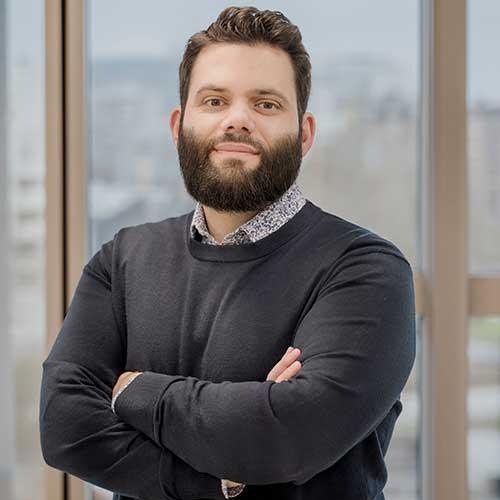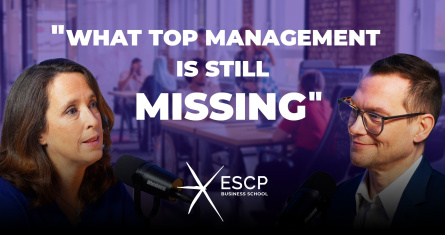ESCP Edge: An interview with Professor Gorgi Krlev
In this episode of ESCP Edge, Professor Gorgi Krlev discusses sustainability and social innovation and what it means to “walk the walk” in corporate sustainability.
As expectations rise for both profit and purpose, organisations are challenged to deliver positive social and environmental outcomes alongside financial returns. Professor Gorgi Krlev, Associate Dean of Sustainability and Professor of Sustainability at ESCP Business School, draws on real-world examples to show how companies can move beyond the basics to drive real impact.
Social innovation in action: how Phenix tackles food waste
When asked to name standout examples of effective sustainability in business, Krlev points to one social startup making a measurable difference: Phenix, a French food waste reduction company that takes a systemic approach to a growing challenge.
"What's really interesting about this startup is that it has a really holistic approach," says Krlev. Beyond selling excess food at reduced prices, the company also helps businesses optimise supply chains, works to improve store management to prevent waste, and collaborates with charities to distribute unsold food.
Phenix stands out not just for its innovative approach to reducing food waste but also for its transparent and comprehensive model with reporting on all their other social impact. This multi-stakeholder model—connecting companies, non-profits, and communities—is a hallmark of effective social innovation.
Climate education at scale: inside AXA Climate School
Turning to larger corporations, Krlev highlights an inspiring initiative from AXA, one of the world’s leading insurers: AXA Climate School. "They started an internal training on climate mitigation and adaptation for their employees," he explains. "They saw this would be very relevant for our clients as well. So instead of just selling the insurance, we're going to also equip them with knowledge concerning the issue."
AXA Climate School now provides digital learning tools to companies worldwide. According to Krlev, this is an example of a corporation moving beyond what is required to contribute actively to improving climate resilience. "Walking the walk or walking the talk, it's really going in and being quite proactive in terms of addressing the challenge instead of just managing it somehow when it comes your way."
ESCP works closely with AXA Climate School through the new ESCP Sustainability Institute. AXA Climate School offers a compelling case study of how a large corporation can extend its influence beyond traditional business models. "We have this collaboration as well where we're looking into how our companies are actually dealing with this huge challenge of climate change adaptation," adds Krlev.
What it takes to lead on sustainability
Krlev’s insights illustrate that both innovative social startups and established corporations have important roles to play in driving positive change. Whether through holistic approaches to food waste reduction or through proactive educational initiatives, these organisations are redefining what it means to be socially and environmentally responsible. Their efforts serve as an inspiring model for other companies looking to make a meaningful impact.
In a world where sustainability is no longer optional, leading by example is crucial. The examples provided by Krlev remind us that real change comes from a commitment to continuous innovation, transparency, and collaboration—values that are essential for building a more sustainable future.
Walking the walk is really going in and being quite proactive in terms of addressing the challenge instead of just managing it somehow when it comes your way.
 Prof. Gorgi Krlev
Prof. Gorgi KrlevAssociate Dean of Sustainability and Professor of Sustainability
ESCP Business School
Stay tuned for future episodes of our new video podcast, ESCP Edge, which brings you sharp insights from ESCP professors working at the cutting edge of business research.
Campus

